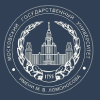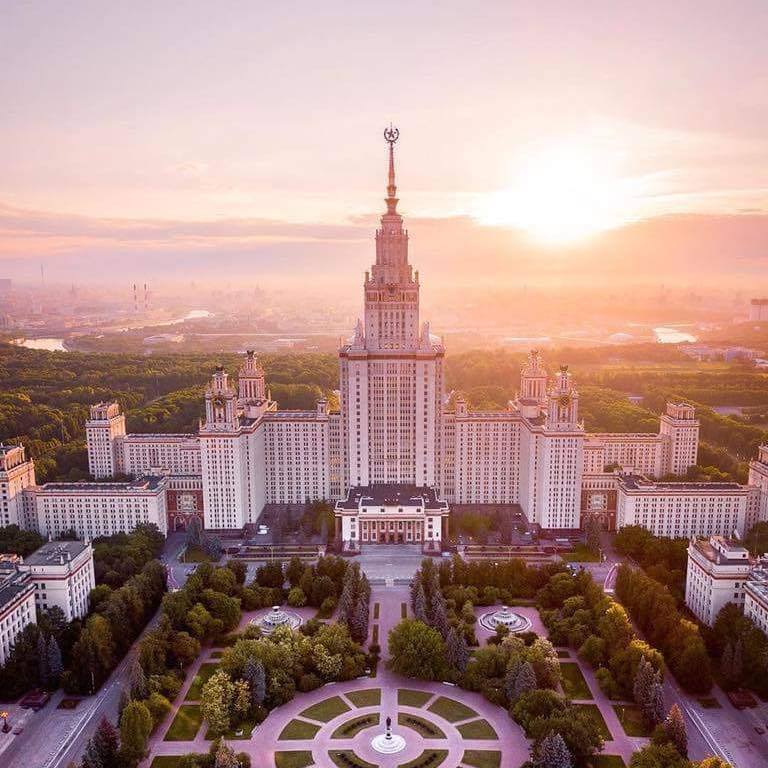Ulitsa Kolmogorova, 1, Moscow 119991, Russia
Career Counselling

Lomonosov Moscow State University is the most prestigious institution of higher learning in Russia, located in the capital city of Moscow. Over 38,000 students are enrolled at MSU, of which more than 10% are international students, and over 22,000 are undergraduates.
MSU has two campuses in the city of Moscow: Vorobyovy Gory (the main campus, with most of the academic buildings and sports complexes) and Mokhovaya. It also has seven international branches, in countries that were once part of the Soviet Union and in China. All campuses are notable for t...
| Establishment year | 1755 |
| Total Students | 38,150 (34,722 full time) |
| International Students | 3,907 (3,875 full time) |
| QS World University Rankings 2024 | =87 |
| Campus Size | N/A |
| Total Number of Campuses | 2 in Moscow + 7 Branches abroad |
| University Website | https://www.msu.ru/en/ |
| No. of Schools and Divisions | 41 Faculties |
| Nobel Prize Winner Alumni | 11 |
| No. of Education Programs | Overall: 128 (UG), 168 (PG) For International Students: 70 (undergraduate), 80+ (Master’s), 20 (PhD) |
| Student to Faculty ratio | 3.7:1 |
Lomonosov Moscow State University offers undergraduate and postgraduate courses through 41 Faculties, which are further subdivided into Divisions and Departments
Undergraduate international applicants to MSU must hold a valid high school degree or diploma, and must satisfy certain academic excellence criteria that vary according to Faculty; these can be found on individual Department web pages. Many countries have international admissions offices; these can be contacted for information specific to entry requirements. If the program of interest is taught in Russian, the applicant will need to be fluent in the language; in the absence of this, a 10 month course at the Institute of Russian Language and Culture is necessary. For programs taught in English, the applicant will need to submit TOEFL or IELTS scores if the country of origin has a native language other than English.
Postgraduate international applicants must satisfy similar criteria. Candidates applying to Master’s courses at MSU must have a valid Bachelor’s degree with transcripts certifying academic excellence. Applicants to PhD courses must have a Master’s degree from a recognized University, along with a record of research achievement.
All international applicants to MSU are advised to do so through the online portal, though documents can also be sent through the mail. The following documents must be uploaded:
For Bachelor’s and Master’s course applicants, the application window is between mid-June and mid-July every year for most programs. PhD candidates can apply in two waves: one between June 15 and July 10, and the other between August 8 and August 22.
Candidates can apply for a maximum of five areas of study. Once the shortlist of candidates is released, all foreign applicants must appear for a remotely held entrance examination. Those who pass this test must send their enrolment consent to the relevant Faculty, after which they receive an invitation letter from the University, with which they can apply for a Russian student visa.
Undergraduate students at MSU pay tuition fees that vary according to the program. Here are some indicative numbers:
Postgraduate students at MSU pay tuition fees that vary according to the program. Here are some indicative numbers:
In addition to tuition fees, international students at MSU should budget for the following expenses:

Lomonosov Moscow State University has two adjacent campuses in Moscow. The main Vorobyovy Gory campus has many academic buildings, extensive sports grounds and indoor locations (including stadia, aquatics pools, football and athletics grounds, gymnasiums, and tennis courts), the main library, and the publishing house of the University. The Mokhovaya campus has some academic buildings and the Zoological Museum. The University also has six overseas branches (primarily in erstwhile Soviet Republics), located in Kazakhstan (Tashkent, Baku, Dushanbe, Yerevan, and Koper). It also operates a joint University with the Beijing Institute of Technology in Shenzhen; this is its seventh location abroad.
The hub of all cultural activities at MSU is the Moscow University Arts and Entertainment Center. All the creative student organizations come together under this umbrella, including multiple orchestras, international dance ensembles, music studios, and literature groups. The Center organizes performances for members of the University and the public.
Annual events at MSU bring the whole student body together to celebrate special occasions. The main events are the Graduation Day, the Science Festival, the Student Spring Festival, and the University Autumn Dance Festival. At these events, students and faculty members collaborate to put on elaborate performances. There are also events periodically organized by international cultural associations, including Korean, Italian, and Chinese cultural performances.

A large number of events on campus are academic and research conferences organized by Departments of the University. The Faculties also organize regular events for school children in the neighborhood.
The main outdoor venue for events, performances, and workshops is the Botanical Garden. This has a large number of fruit trees, open spaces, and desert plants, providing an ideal backdrop for the most dynamic events at the University.
Sports clubs at MSU are monitored by the Department of Physical Education. There are more than 40 sports that are formally played at the University. There are more than 40 sections at Moscow State University in all major sports, including athletics, skiing, aerobics, and karate. Lomonosov University has world class sports facilities, including a large indoor sports building with basketball, volleyball, and universal halls. The main building contains an Olympic size swimming pool and cardio, fitness, and weight training areas. Outdoor sports are well represented as well, with track and field arenas and football fields in the MSU stadium. There are also smaller gymnasiums and indoor sports buildings on other campuses, as well as dormitories and academic buildings.
The Russian Government Scholarship is awarded based on academic excellence and is open to both domestic and foreign postgraduate students at MSU. Each program that is taught in Russian has a certain number of funded seats, and the award typically entails a full tuition fee waiver, along with a monthly stipend.
Every Department has its own Scholarships, primarily for Master’s students; details can be found on the relevant pages. For example, the Theoretical Physics and Mathematics Advancement Foundation awards tuition fee grants and monthly stipends of up to 50,000 rubles to exceptional Master’s candidates studying Quantum Geometry.
